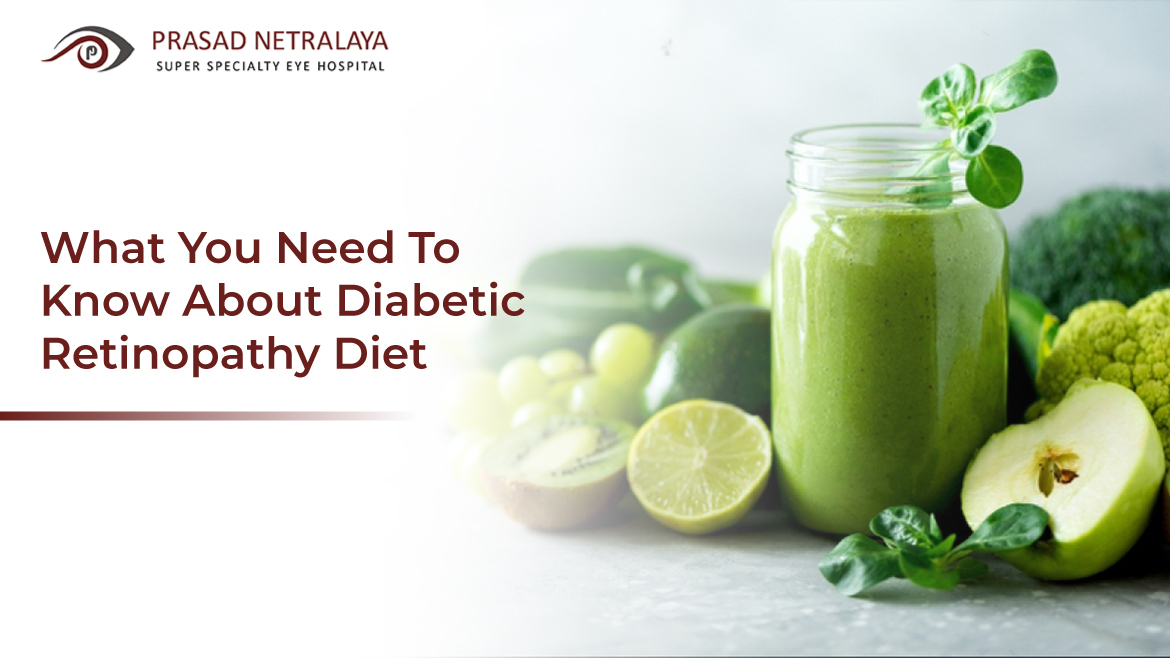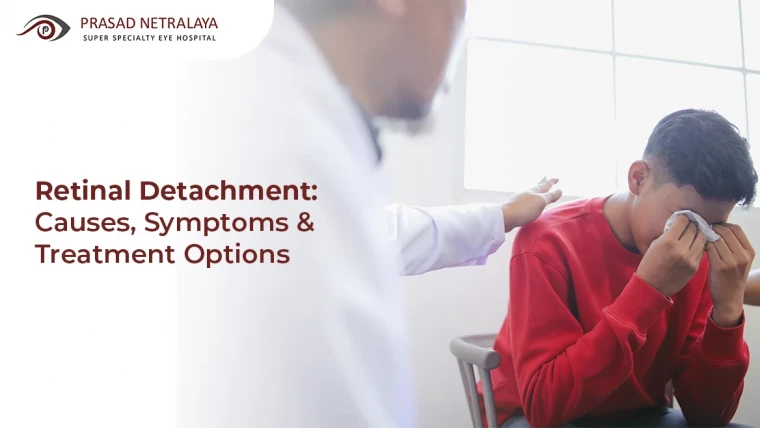Diabetic retinopathy is one of the most prevalent causes of vision loss among adults. According to the American Diabetes Association, people in the age group of 20–74 are more vulnerable to this condition.
A recent study showed around 77 million individuals in India have diabetes, which is caused mostly by unhealthy food consumption, which soon leads to diabetic retinopathy.
Along with taking medication, a healthy diabetic diet plays a vital role in maintaining a healthy lifestyle and can help you control your diabetes and keep your blood sugar levels stable.
Scroll through this article to learn more about diabetic eye disease and the recommended diet list.
Table of Contents
What is Diabetic Retinopathy?
diabetic eye disease is a retinal disorder that occurs due to high levels of glucose in the body. People with diabetes are usually at high risk for this medical condition. Though it’s mainly a genetic condition, people can lower the risk of further damage with a proper diet.
High blood sugar levels can affect the retina and the blood vessels around the eyes. If your blood sugar rises, it will slowly damage the delicate blood vessels in your retina, which will cause you to lose your vision over time.
Damage to your retina from diabetes further leads to bleeding. In the later phases of this condition, your eyes may scar and lose cells when new retinal blood vessels grow.
Diabetic retinopathy has four stages of progression:
- Mild non-proliferative diabetic retinopathy
- Moderate nonproliferative diabetic retinopathy
- Severe non-proliferative diabetic retinopathy
- Proliferative diabetic retinopathy
Symptoms of Diabetic Retinopathy
The symptoms of diabetic eye disease aren’t readily apparent to the naked eye. The patient alone can recognize something is wrong on account of the irritation. The symptoms of this condition include the following:
- Discolouration in vision
- Changing perceptions
- Vision impairment
- Blind spots in vision
Everything You Should Know about Diabetic Retinopathy Diet
In our day-to-day routine, we knowingly or unknowingly consume foods that trigger various medical conditions. To balance your diet with healthy foods, go through our well-researched diabetic eye disease diet list that divides healthy and unhealthy foods.
Also Read : Diabetic Retinopathy: Causes and Symptoms to Keep an Eye Out For
Foods to Add to Your Diet List
1. Fruits and Vegetables
Fruits and vegetables are essential for diabetic retinopathy patients. Eating a healthy portion of fresh fruits and vegetables daily nourishes your body with lutein and antioxidants, both of which protect the quality of your eyesight. Include the following fruits and vegetables to your diet:
- Spinach
- Citrus fruits
- Carrots
- Corn
- Pumpkin
- Garlic
- Strawberries
- Turnips
- Kale
2. Vitamin A-Rich Foods
Vitamin A-rich foods should be part of your daily diet because they may slow down retinopathy. Vitamin A improves your night vision while also protecting the outer surface (cornea) of your eyes. Include the following fruits and vegetables to your diet list as they are rich sources of vitamin A:
- Carrots
- Spinach
- Sweet potatoes
- Cantaloupes
- Kale
3. Whole Grains
Whole grains provide your body with nutrients like vitamins, dietary fibre, and minerals. Add these to your diet to balance your glucose levels:
- Brown rice
- Oatmeal
- Quinoa
4. Plant-Based Proteins
High-protein, plant-based foods contain essential minerals, antioxidants, and fibre. Add these healthy proteins to your diet to control your glucose levels:
- Walnuts
- Tofu
- Beans
- Pistachios
- Hazelnuts
- Almonds
- Cashews
Foods to Avoid with Diabetic Retinopathy
1. Sugar and Sweets
Sugar can trigger your diabetes by raising your glucose levels. Sugary and sweet foods that are good to avoid include:
- Soda
- Packaged juices
- Iced tea
- Cookies
- Crackers
- Sports drinks
2. Processed Foods
Processed foods increase cholesterol levels and minimize the absorption of glucose in the body. Such foods include:
- White bread
- Brown bread
- Cold cuts
- Pasta
3. Trans Fats
Consumption of trans fats can increase your bad cholesterol level and lower good cholesterol. Trans fats worsen insulin resistance, inflammation, and belly fat. Avoid foods like:
- Jams and spreads
- Peanut butter
- Fried foods
- Crackers
- Cookies
- Pizzas
- Fast foods
Consult with the Best Eye Surgeon about Diabetic Retinopathy
Patients suffering from diabetic eye disease need to watch their sugar levels and closely monitor their eye health. Following a diet that maintains your blood sugar levels and improves and maintains your eyesight can help control diabetic retinopathy. Additionally, we also recommend regular check-ups with your physician so they can advise you on diet and exercise.
When it comes to treating diabetic eye disease, Prasad Netralaya Eye Hospital has a reputation for excellence. This Mangalore-based eye hospital is regarded as one of the best eye-care hospitals and is staffed by renowned eye specialists. To learn more about diabetic retinopathy and other related treatments, you can visit our website and consult with one of our specialists.
Dr. Vikram Jain, M.S. had his medical training (MBBS) from Kasturba Medical College, Mangalore, India. He did his master’s in Ophthalmic surgery from Kasturba Medical College, Manipal. He currently manages the Glaucoma department of Prasad Netralaya hospital.



